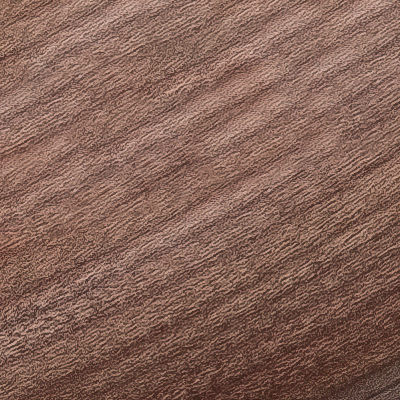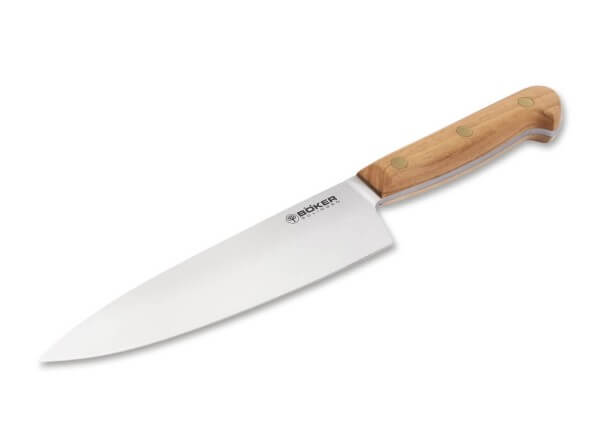Cherry Wood

The wood of several cherries species is marketed under the name of cherry wood. It is used to make exquisite knife handle scales.
Cherry trees grow almost anywhere around the world in temperate climates. Even in the ancient world, the cherry tree was a cultivated plant. Originally it was cultivated on the coast of the Black Sea in the northeast of modern Turkey. Folklore has it, that a Black Sea cherry tree was delivered to Rome in the first century CE, where it was named "Cerasum" after its place of origin, the old city of Cerasus (today: Giresun). The French (cérise), Spanish (cereza) and English names are derived from this Latin name. Cherry wood is harvested from several wild and cultivated European sweet cherry trees (Prunus avium). Therefore, cherry wood is also known as "sweet cherry" or "bird cherry". The slightly darker wood of the North American cherry tree is called "American cherry" or "black cherry". In the forest, wild cherry trees can grow up to 20 meters tall. Cultivated cherries are much shorter, growing only to a maximum of ten meters.
The trunks of wild and cultivated cherry trees generally reach a diameter of 40 to 80 centimeters. The heartwood used in woodworking starts out in a light yellow color which darkens over time until it reaches a reddish-brown hue. Cherry wood has delicate dark veins. The so-called end grain of the cherry tree (a piece cut across the grain) clearly shows the medullary rays running perpendicular to the age rings. Cherry wood is medium weight, has medium to high hardness and great elasticity. It is easy to process and can be polished to a perfect sheen thanks to its fine pores.
Cherry wood is very decorative. Due to its reddish color, it is a popular material to make furniture and veneers as well as smaller objects of great quality, including handle scales.



